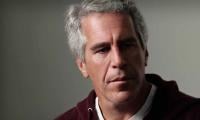A story writ in blood
Attending the Karachi Literature Festival last weekend was almost like going on a short vacation. And that too, metaphorically, to a foreign country where they talk things differently. It was emotionally an overwhelming experience.
Ah, but we – those of us who had delved deeply into the KLF proceedings – were promptly repatriated to the real world on Monday (Feb 13) when a suicide bomb blast left more than a dozen dead in Lahore. It was all the more unsettling because the fatalities included two very senior police officers.
The shock waves of the Charing Cross blast spread across the nation and our leaders made strong statements to pledge a conclusive campaign against the terrorists. However, as the week progressed, there were more incidents of terror – with a lower count of casualties. It was a new wave rising.
Until Thursday. On this day, the terror wave made a terrifying landfall on one of the most revered locations in this country. It could provoke a clichéd question: Where were you when you first learnt about the suicide blast at the shrine of Lal Shahbaz Qalandar in Sehwan?
This would naturally lead to more questions, depending on your spiritual leanings, personal encounters with Sufi teachings and music, and your knowledge of what the Qalandar and his shrine mean to countless devotees. Irrespective of all this, it may be assumed that your heartbeat rises to a crescendo whenever you hear the “damadam mast qalandar” song, the mandatory finale of every session of Sufi and popular music.
So, this Sehwan blast is not something that can easily recede from your memory against the onslaught of fresh headlines. This heartbreaking tragedy has also blatantly exposed the capacity and the corruption of our administration. Here is evidence that some of our officials have acted in an incompetent manner. But will the revelations that we have make any difference?
I am trying not to be emotional. My wife and I have been to Sehwan more than once and empathise with the poor people who seek hope and solace at such places so that their dreary lives become more tolerable. One must also look at Sufi shrines from a higher cultural and civilisational standpoint. It is the Sufi thought – celebrating love and selflessness – that this troubled world is asking for.
We have Rumi, for instance. He has been discovered by the West in a big way. Now, consider the fact that our Qalandar and Rumi were contemporaries. Both wrote poetry in the Persian language. Rumi died in 1273 and Lal Shahbaz died a year later, in 1274. A few years ago, when I visited Rumi’s mausoleum in Konya, Turkey, the Data Darbar in Lahore and the Sehwan shrine were in my thoughts. We should also recall the bomb blast at Data Darbar in 2010.
In any case, Thursday’s bomb blast within the dargah in Sehwan is a major event of terrorism not just because of the number of casualties. It has come in the wake of Operation Zarb-e-Azb and the launching of the National Action Plan more than two years ago. The terror networks had professedly been weakened. Then, after a sinister buildup, we had this catastrophe.
After Thursday evening, I have listened to various renderings of the ‘Damadam’. It is Abida Perveen’s signature. She is peerless in this department. But you have so many vocalists who have presented it with great gusto, including in India. It is the true measure of the glory of Lal Shahbaz. I must confess that every time I hear it now, my eyes tear up.
After the Lahore atrocity, Prime Minister Nawaz Sharif made a strong statement. This newspaper’s lead headline on Wednesday was: “PM promises ruthless response to terrorists”. He was quoted as saying that “we will soon see the end of this cancerous terrorism and its ideology”. Its ideology? This makes us think, considering the uninspiring implementation of NAP.
After this resolve, the bar was obviously raised very high by the Sehwan blast. So, we had this statement issued by the PM’s media office: “The attack on the shrine of Lal Shahbaz Qalandar represents an attack on the progressive, inclusive future of Pakistan; one where every man, woman and child is entitled to life, liberty in the pursuit of happiness no matter their religion”.
We know where the expression ‘pursuit of happiness’ has come from. What is surprising is that Nawaz Sharif is affirming a ‘progressive, inclusive’ future of Pakistan without any religious discrimination. One wonders if these things have properly been thought out. Or is it that a speech writer got overly excited?
As for the army leadership, the shock was no less intimidating. The director general of ISPR quoted Chief of Army Staff Gen Qamar Javed Bajwa in his tweets as saying that each drop of nation’s blood will be revenged immediately. To be sure, there was a lot of action on the ground. There were reports of Pakistani forces pounding terrorist camps in Afghanistan. In a single day – Friday – 100 ‘terrorists’ were killed in operations.
But how much can be achieved through military action alone, without our rulers defining strategies to make Pakistan ‘progressive’ and ‘inclusive’? This question takes me back to that vacation I took last weekend. It was not entirely a soothing experience because the focus in the KLF was on the Pakistan movement and the Partition to mark the 70th year of our independence. Unfortunately, I have no space to review some sessions that attempted to make a sense of what we have made of the country.
To that extent, this week’s surge in terror has some direct link with the historical basis of Pakistan and with the communal carnage that attended the Partition of British India. Initially, I had wished to be able to dwell a bit on two of my own involvements. One, I moderated the launch of the reprint of Maj-Gen Rao Farman Ali’s account of ‘How Pakistan Got Divided’. After all, we still have to come to terms with the killings and migrations of 1947 and then with the loss of East Pakistan.
In addition, I wanted to write about the Peace Prize sponsored by the German Consulate in Karachi. It was awarded to young Anam Zakaria for her ‘Footprints of Partition’ – personal stories of four generations of Pakistanis and Indians. It shows that Partition is still a part of many lives. Looking at it against the backdrop of this week’s incidents of terror, I wonder how much of our story is writ in blood.
The writer is a senior journalist.
Email: ghazi_salahuddin@hotmail.com
-
 Charlize Theron Delivers Strong Message At 2026 Winter Olympics Opening Ceremony
Charlize Theron Delivers Strong Message At 2026 Winter Olympics Opening Ceremony -
 Lil Jon Reacts To Son Nathan Smith's Death: 'Devastated'
Lil Jon Reacts To Son Nathan Smith's Death: 'Devastated' -
 Bianca Censori Reveals Where She And Kanye West Stand On Having Children Together
Bianca Censori Reveals Where She And Kanye West Stand On Having Children Together -
 Taylor Swift Hypes Olympic Athletes In Surprise Video Message
Taylor Swift Hypes Olympic Athletes In Surprise Video Message -
 Timothy Busfield Charged With Four Counts Of Child Sexual Abuse
Timothy Busfield Charged With Four Counts Of Child Sexual Abuse -
 Kanye West First Contacted Bianca Censori While In Marriage To Kim Kardashian?
Kanye West First Contacted Bianca Censori While In Marriage To Kim Kardashian? -
 Travis Kelce Reveals What His Nieces Really Do When He, Taylor Swift Visit
Travis Kelce Reveals What His Nieces Really Do When He, Taylor Swift Visit -
 Lola Young Makes Career Announcement After Stepping Back From Touring
Lola Young Makes Career Announcement After Stepping Back From Touring -
 Priyanka Chopra Shares Heartfelt Message For Nick Jonas
Priyanka Chopra Shares Heartfelt Message For Nick Jonas -
 Spotify, Major Labels File $13b Lawsuit Over Alleged Music Scraping
Spotify, Major Labels File $13b Lawsuit Over Alleged Music Scraping -
 Travis Kelce Opens Up About Being Backup Plan For His Nieces
Travis Kelce Opens Up About Being Backup Plan For His Nieces -
 Winter Olympics 2026: Chinese Robot Dance Goes Viral In Milan
Winter Olympics 2026: Chinese Robot Dance Goes Viral In Milan -
 Jessica Biel Urged To Divorce Justin Timberlake?
Jessica Biel Urged To Divorce Justin Timberlake? -
 Rebecca Ferguson Gets Honest About Having First Kid With 22 Year Older Man
Rebecca Ferguson Gets Honest About Having First Kid With 22 Year Older Man -
 Epstein Ties: UK Police Search Properties In Probe Into Peter Mandelson
Epstein Ties: UK Police Search Properties In Probe Into Peter Mandelson -
 Andrew Mountbatten-Windsor’s Friendship With A Child Sex Offender Turns His Future Murkier
Andrew Mountbatten-Windsor’s Friendship With A Child Sex Offender Turns His Future Murkier



